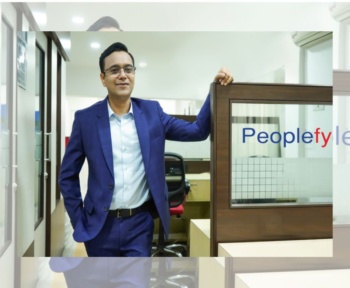Artificial Intelligence (AI) is revolutionizing the Human Resources (HR) sector by optimizing processes, enhancing inclusivity, and improving strategic outcomes.
AI is reshaping the HR landscape, allowing organizations to streamline operations, enhance decision-making, and enrich employee experiences. As the business landscape grows more complex, AI assists HR teams in focusing on high-level objectives by automating routine tasks and providing actionable insights. This integration results in a more efficient HR function that aligns seamlessly with the organization’s broader goals.
This transformative technology significantly impacts various HR functions, such as recruitment, employee engagement, and operational efficiency. Here’s how AI is redefining these key areas:
Revamping Recruitment Processes:
AI has had one of the most profound effects on recruitment. AI-driven platforms have revolutionized talent acquisition, from candidate sourcing and screening to aligning skills with roles. These tools analyze vast data to identify top candidates, reducing time-to-hire and improving recruitment outcomes. Beyond efficiency, AI promotes a more equitable and inclusive hiring process by mitigating unconscious bias. By relying on objective criteria rather than subjective judgment, organizations ensure diverse talent pools and a fairer process for all candidates.
Enhancing Employee Engagement and Development:
AI is also transforming employee engagement and development strategies. Personalized learning platforms powered by AI recommend training programs, resources, and career pathways tailored to individual aspirations and skills. This empowers employees to take ownership of their professional growth while fostering a skilled and motivated workforce. Moreover, AI-driven career development tools align individual goals with organizational needs, boosting talent retention and preparing employees for future challenges. This alignment nurtures both personal development and organizational success.
Streamlining Operations through Automation:
AI’s impact extends beyond talent management. By automating routine tasks such as payroll processing, attendance tracking, and compliance monitoring, AI frees HR teams to focus on strategic initiatives. AI-driven workforce analytics offer real-time insights that inform data-driven decision-making. For example, predictive analytics can detect patterns in employee turnover, enabling organizations to implement preemptive measures to improve retention. These capabilities enhance operational efficiency and elevate HR’s role as a strategic partner within the organization.
Addressing Ethical and Privacy Considerations:
Despite the numerous benefits, AI in HR raises essential ethical and privacy considerations. Organizations must ensure responsible deployment by establishing solid governance frameworks and adhering to data protection regulations. Transparency regarding algorithm use is critical for building trust with employees and candidates. Regular audits, continuous HR team training, and clear accountability structures are essential for managing these concerns. AI can foster greater fairness and inclusivity when used responsibly, reinforcing its value within HR operations.
Expanding AI's Role in HR:
AI’s role in HR is set to expand significantly in the coming years. Beyond its current applications, AI tools are being developed to monitor employee engagement and mental health, allowing organizations to address potential issues proactively. Predictive analytics is integral to workforce planning, helping leadership anticipate talent gaps or surpluses and adjust accordingly. Additionally, AI drives innovation in learning and development, with adaptive platforms offering training content tailored to individual needs. These tools are vital for keeping employees competitive in an evolving job market in an era of rapid technological change.
Balancing AI with the Human Element:
While AI presents tremendous potential, it is not a substitute for the human aspect of HR. Empathy, creativity, and cultural sensitivity are essential for fostering meaningful employee relationships. The key is leveraging AI for routine tasks, thus enabling HR professionals to focus on areas requiring emotional intelligence and strategic insight. HR teams must embrace continuous learning and adaptability to thrive in an AI-driven environment. Cultivating data analytics, strategic thinking, and emotional intelligence expertise will allow HR departments to maximize AI’s benefits while preserving their unique value.
A Collaborative Future for HR
AI is an invaluable tool for transforming HR, but its full potential is realized when it complements human capabilities. By adopting AI thoughtfully and ethically, organizations can cultivate flexible, inclusive workplaces where employees feel valued and supported. The future of HR is not about choosing between humans and technology—it is about integrating the strengths of both to foster growth, innovation, and engagement. As this new era unfolds, HR leaders have the opportunity to shape a workforce centered on collaboration, continuous learning, and shared success.



